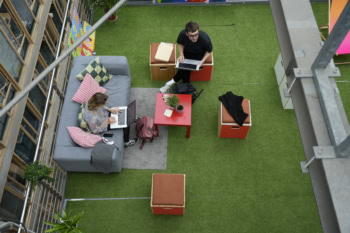Study Visual Journalism and Documentary Photography. The bachelor’s programme at Hannover University of Applied Sciences and Arts will open the door to editorial desks, publishing houses and media companies.
 Photo: Wilma Leskowitsch
Photo: Wilma Leskowitsch
The programme teaches multidisciplinary visual skills based on the media of photography and video. We focus on journalistic and documentary narratives.
Degree Bachelor of Arts (B.A.)
Start of studies Winter semester (September 1)
Application deadline March 15
Teaching languages German or English
Types of studying Full-time and part-time
Duration of studies 8 semesters
Admission mode Selection procedure / artistic aptitude test
What is the aim of our programme of study?
Our students qualify as image experts and visual journalists.
What are the professional prospects?
Our graduates work in various fields: Some work as freelance photographers, video journalists, or camera operators, and they finance their freelance documentary projects with scholarships and grants. Others opt for a permanent position after graduation, e.g., as a picture or video editor at a newspaper, curator at a gallery, or multimedia producer at an NGO.
A steadily growing number of job offers, which we regularly send out via our alumni mailing list, testify to the high demand for visually trained experts. In addition, more and more graduates are establishing their own start-ups and benefitting from the international network associated with our programme.
How does the bachelor’s degree in Visual Journalism and Documentary Photography differ from other programmes?
We differ from traditional journalism programmes in focusing on the visual (e.g., photography, video, and data visualisation). Unlike most photography programmes, we focus on journalistic and documentary storytelling. Along with our international orientation and innovative teaching concepts such as the Educational Newsroom, this results in a globally unique programme.
How is the course of studies organised?
The first two semesters include seminars like Visual Language, Research, and Storytelling in Journalism, which teach the technical and methodological basics. From the third semester on, many elective courses, such as Photobook, Short Documentary, and Data Visualisation, give you the opportunity to develop your profile. The fifth semester is for the 19-week compulsory internship, and the eighth is for the bachelor project.
How much does it cost to study?
For first-time students, the semester fee for the 2022/23 winter semester was €404.41. From the second semester on, it is currently €318.31. You can find more information on the university’s website. For material, printing costs, etc., you should add an extra €100 to €150 per month.
According to a study, students in Germany need about €850 per month for living expenses. There are regional fluctuations, but Hannover is in the middle range and roughly corresponds to this average. However, the data are from 2016, and prices are likely to have risen. Of course, there are also individual differences in living costs, so the figure given should be taken only as an approximation.
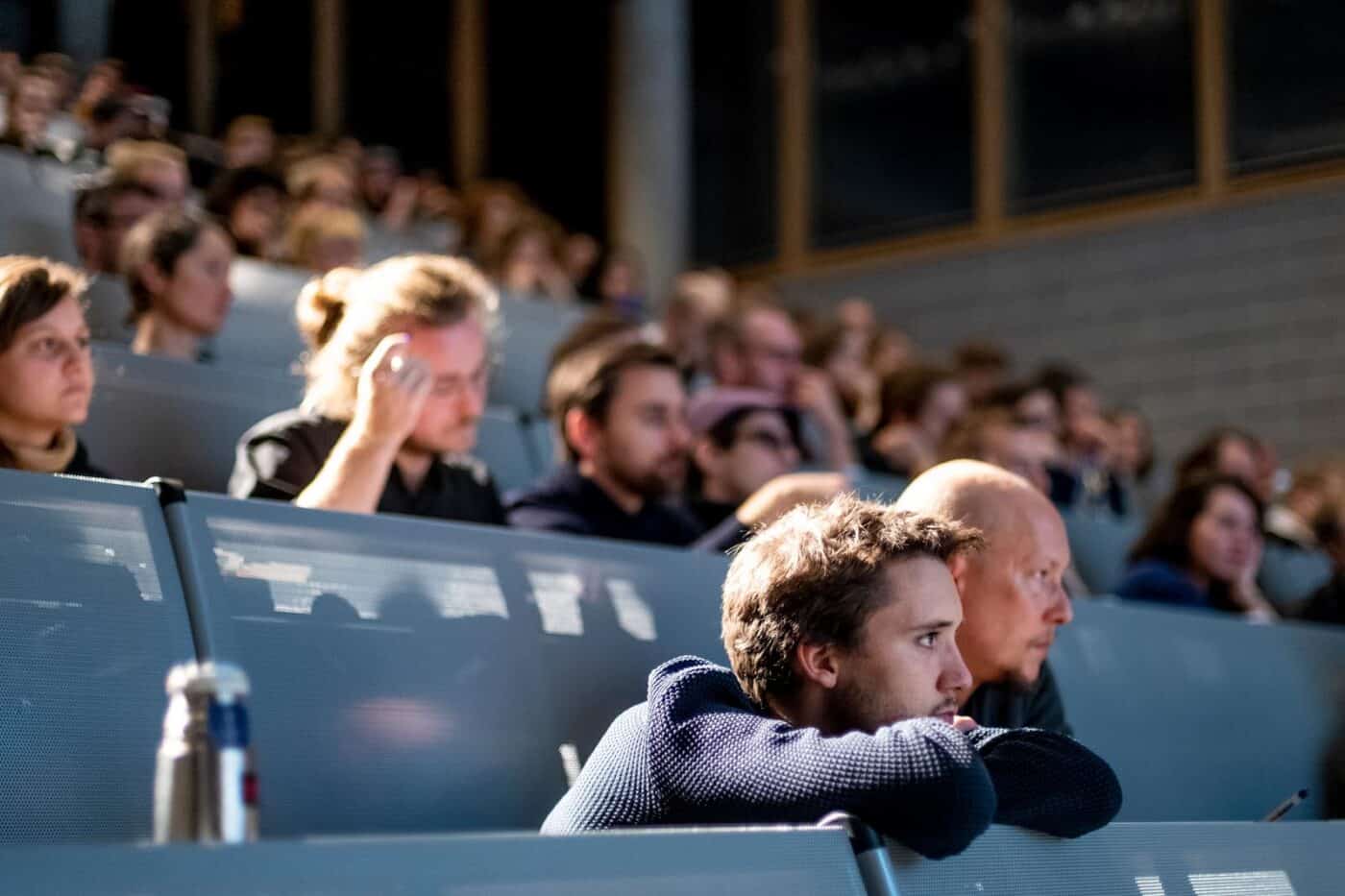 Students in the Design Center lecture hall. Photo: Michael Braunschädel
Students in the Design Center lecture hall. Photo: Michael Braunschädel
Almost a decade ago, we produced the first visual stories with students from Hannover in the multimedia department, which then received a lot of attention and won many journalism awards.
 Dr. Jens Radü, Managing Editor, Der Spiegel
Dr. Jens Radü, Managing Editor, Der Spiegel
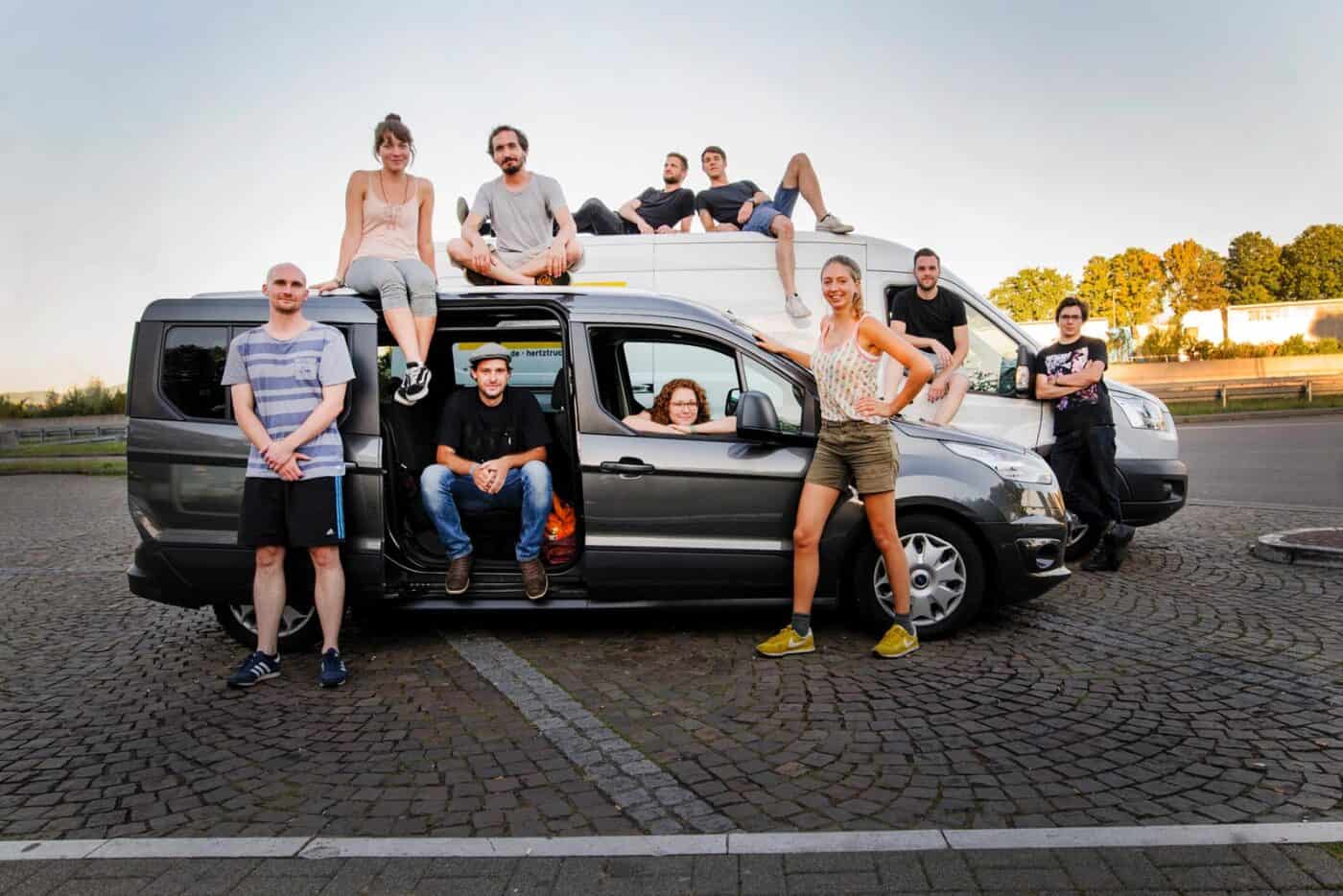 Study excursion to Perpignan. Photo: Maximilian von Lachner
Study excursion to Perpignan. Photo: Maximilian von Lachner
The open exchange is what I particularly appreciate about the Visual Journalism and Documentary Photography programme. All students find their way here.
 Elke Latinović, Deputy Lead Art Buying, C3
Elke Latinović, Deputy Lead Art Buying, C3
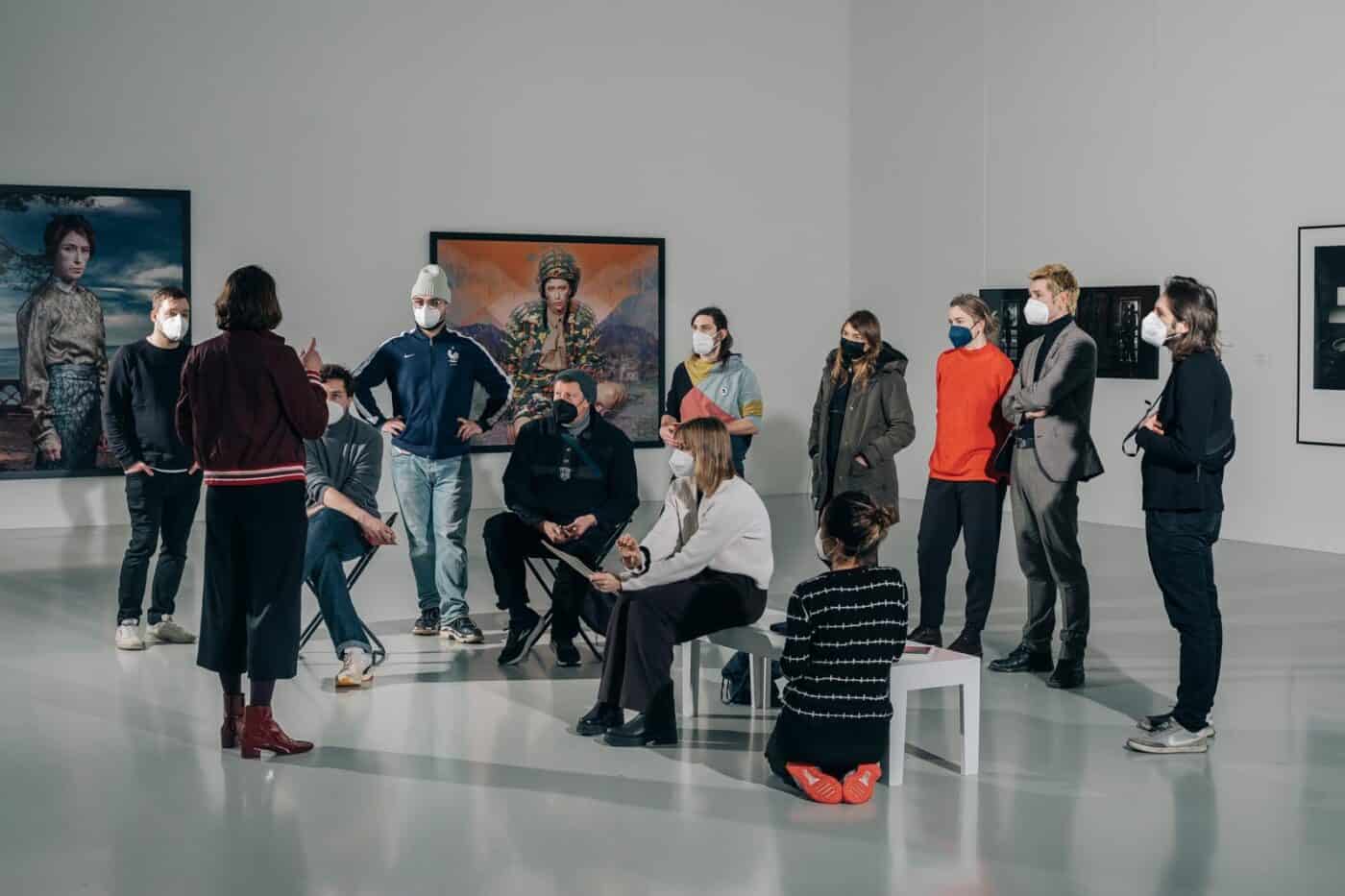 Excursion to the Sprengel Museum with Prof. Dr. Karen Fromm. Photo: Rafael Heygster
Excursion to the Sprengel Museum with Prof. Dr. Karen Fromm. Photo: Rafael Heygster
During my studies, I was given a toolbox that I can now use to develop as a photographer.
 China Hopson, Alumna
China Hopson, Alumna
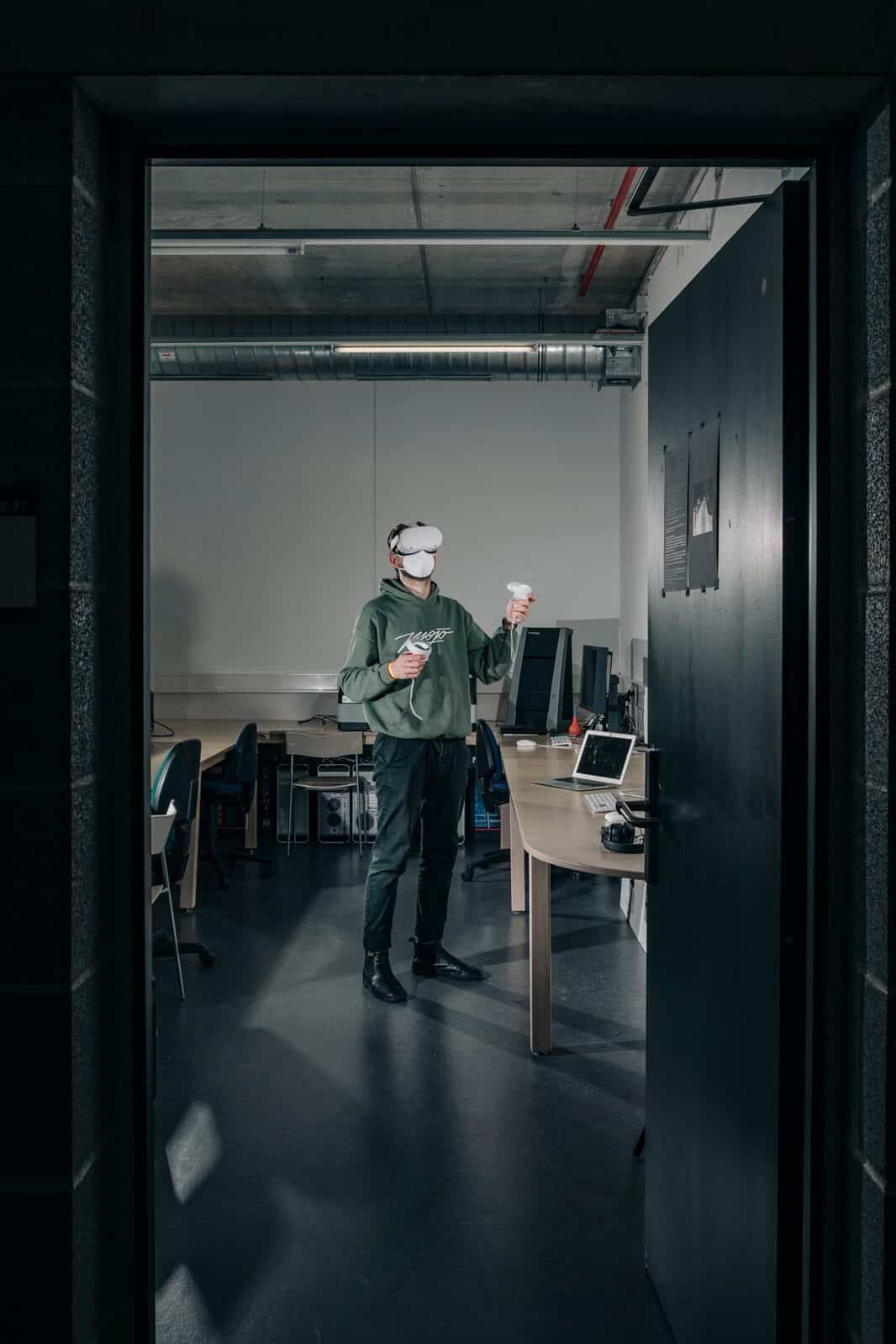 In our studios in the basement of the Design Center, students have the opportunity to produce 360° films. Photo: Rafael Heygster
In our studios in the basement of the Design Center, students have the opportunity to produce 360° films. Photo: Rafael Heygster
Over the years, more than 60 students from Hannover have completed a six-month internship with us. We are still in close contact with many of them today.
 Henner Flohr, Head of Picture Desk, F.A.Z.
Henner Flohr, Head of Picture Desk, F.A.Z.
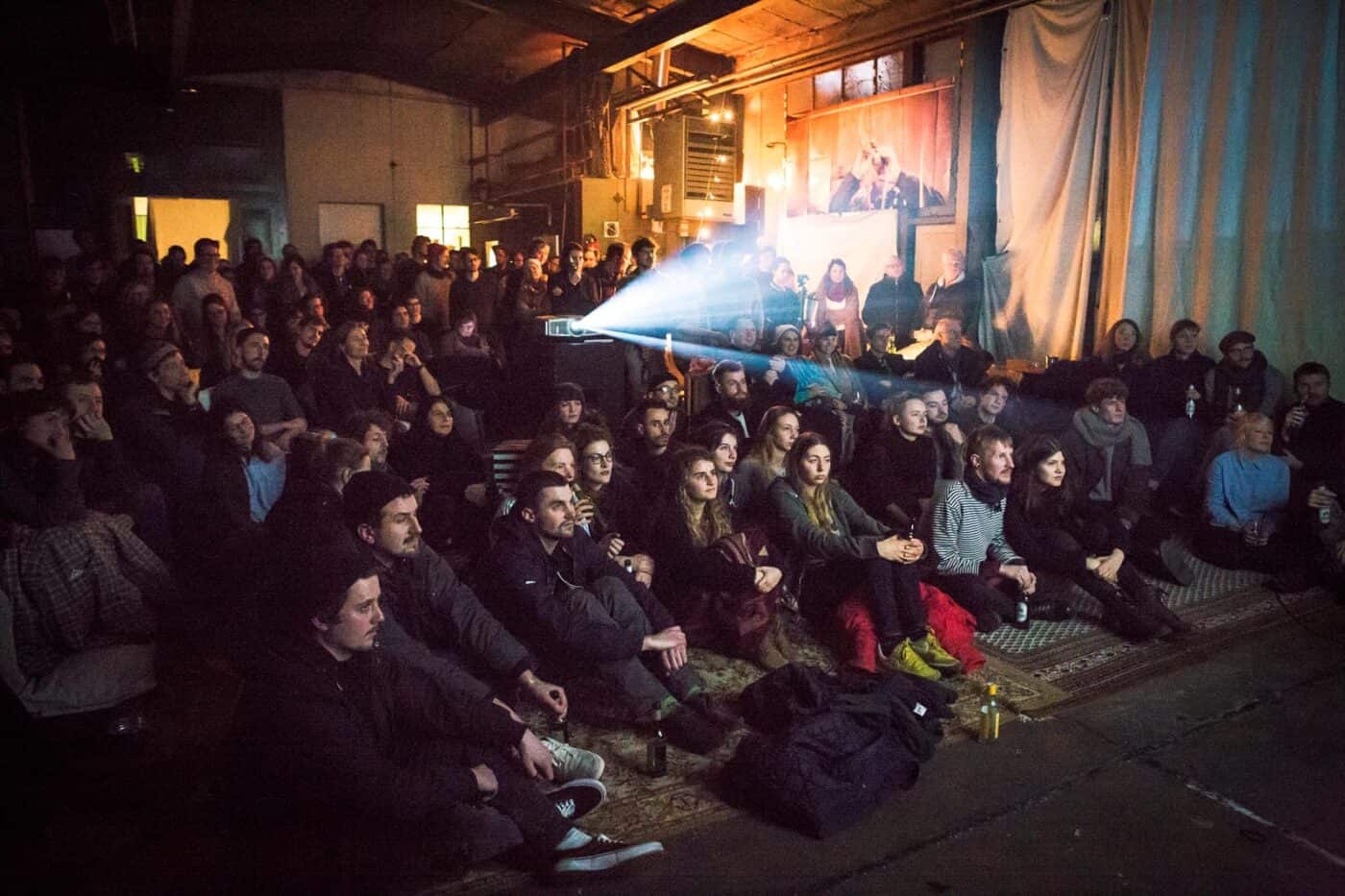 Screening of student projects in the "Goethe Exil". Photo: Rafael Heygster
Screening of student projects in the "Goethe Exil". Photo: Rafael Heygster
I’m always fascinated by working with the Hannover University of Applied Sciences and Arts students. They are creative and curious and work with dedication on their projects.
 Andreas Trampe, Senior Picture Editor, Stern
Andreas Trampe, Senior Picture Editor, Stern
Our programme is located in the Design Center of the Hannover University of Applied Sciences and Arts, on the former site of Expo 2000. The technical equipment of the programme is state-of-the-art.
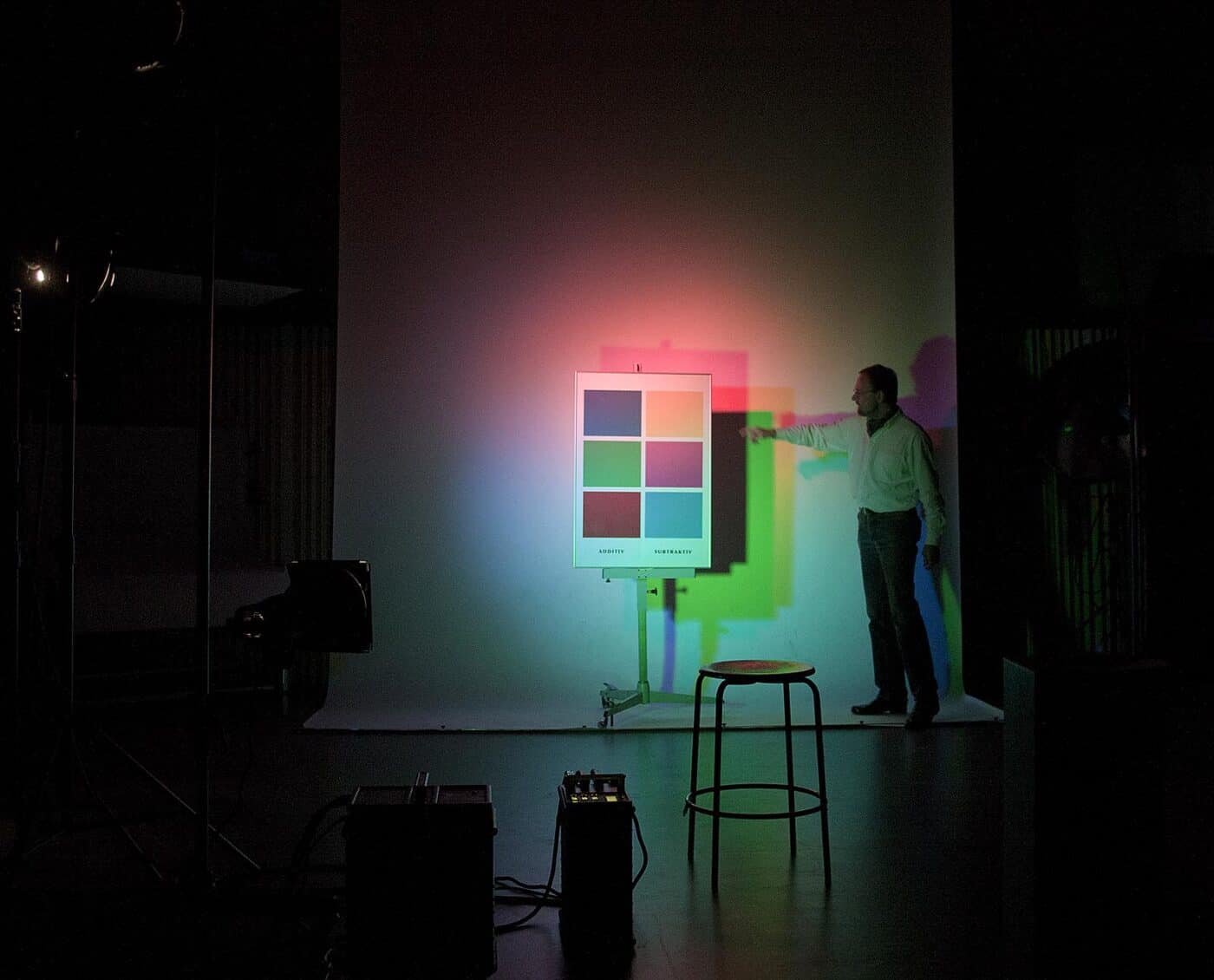 Introduction to the photo studio. Photo: Tina Kernchen
Introduction to the photo studio. Photo: Tina Kernchen
A photo studio, B/W lab, modern computer, scanning and printing rooms, an Educational Newsroom as well as professional digital and analogue camera technology, the latest virtual reality glasses, and a professional 360° camera are available. All the equipment can be rented. The university’s library, also located on the Expo Plaza, is excellently stocked with current and classic photography books as well as technical literature and is constantly being expanded.
With an international orientation and regional roots, Hannover University of Applied Sciences and Arts has around 10,000 students in five faculties.
Faculty III is Hannover University of Applied Sciences and Arts most prominent faculty and offers many highly sought-after degree programmes. Graduates of the 18 degree programmes find their place in the job markets of the creative, information, communication, and media industries. In addition to 14 Bachelor’s programmes, our faculty also offers four Master’s programmes in “Design and Media” and “Information and Communication.”
The workshops and laboratories of Faculty III – Media, Information and Design support practice-oriented education. With their extensive technical equipment, they offer students a wide range of opportunities to realize their designs and produce models, thereby expanding their practical knowledge.
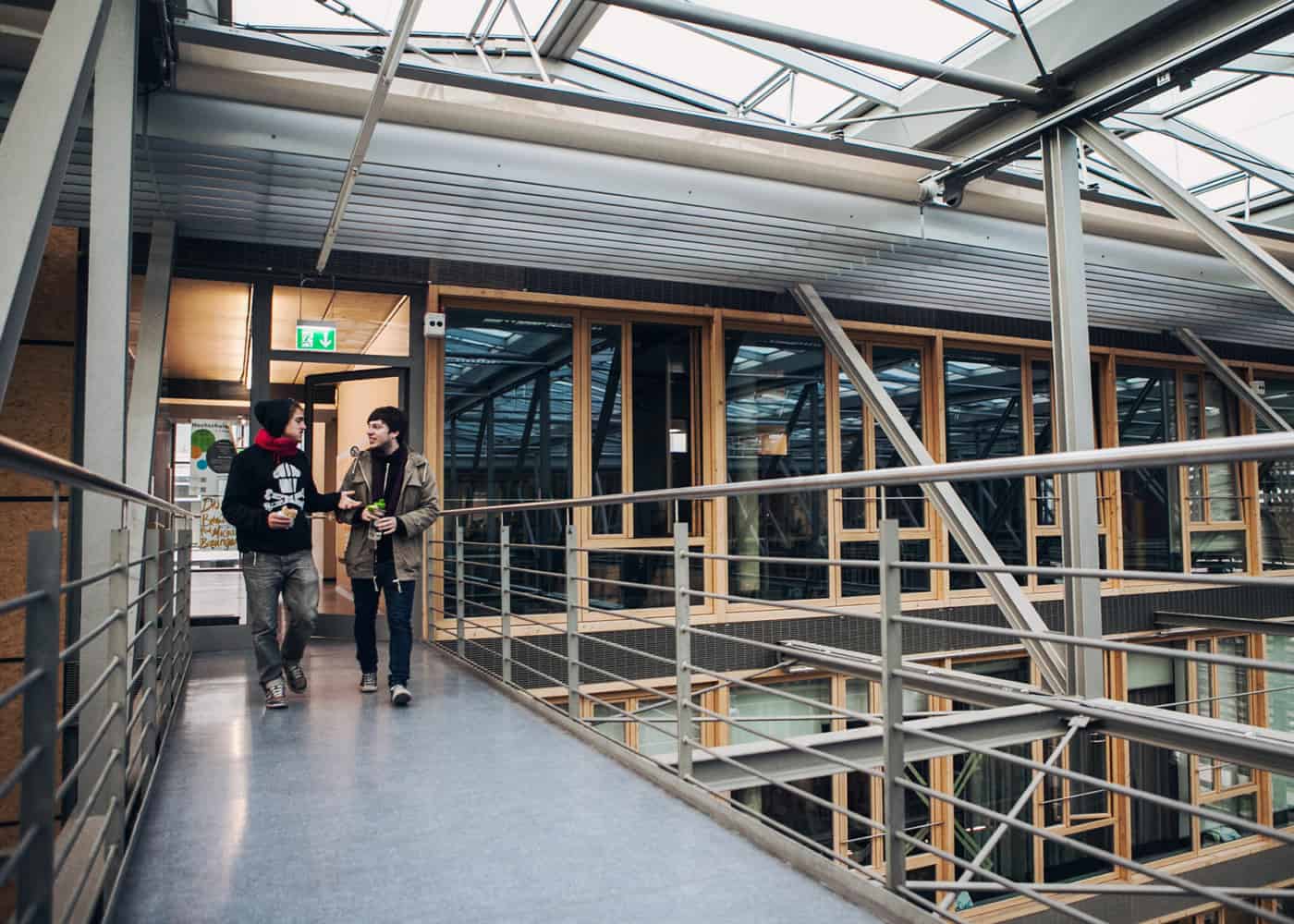 Students at the Design Center at Hannover University of Applied Sciences and Arts. Photo: Marcus Windus
Students at the Design Center at Hannover University of Applied Sciences and Arts. Photo: Marcus Windus
Team:








Your contact partners will be happy to assist you with your personal concerns. However, due to the large number of enquiries, we ask you to first check our FAQ to see if your question may already have been answered.
Dean of Studies, Design and Media department
Programme representative
Application and admission procedure
Hochschule Hannover
Faculty III – Media, Information and Design
Expo Plaza 2
D-30539 Hanover
